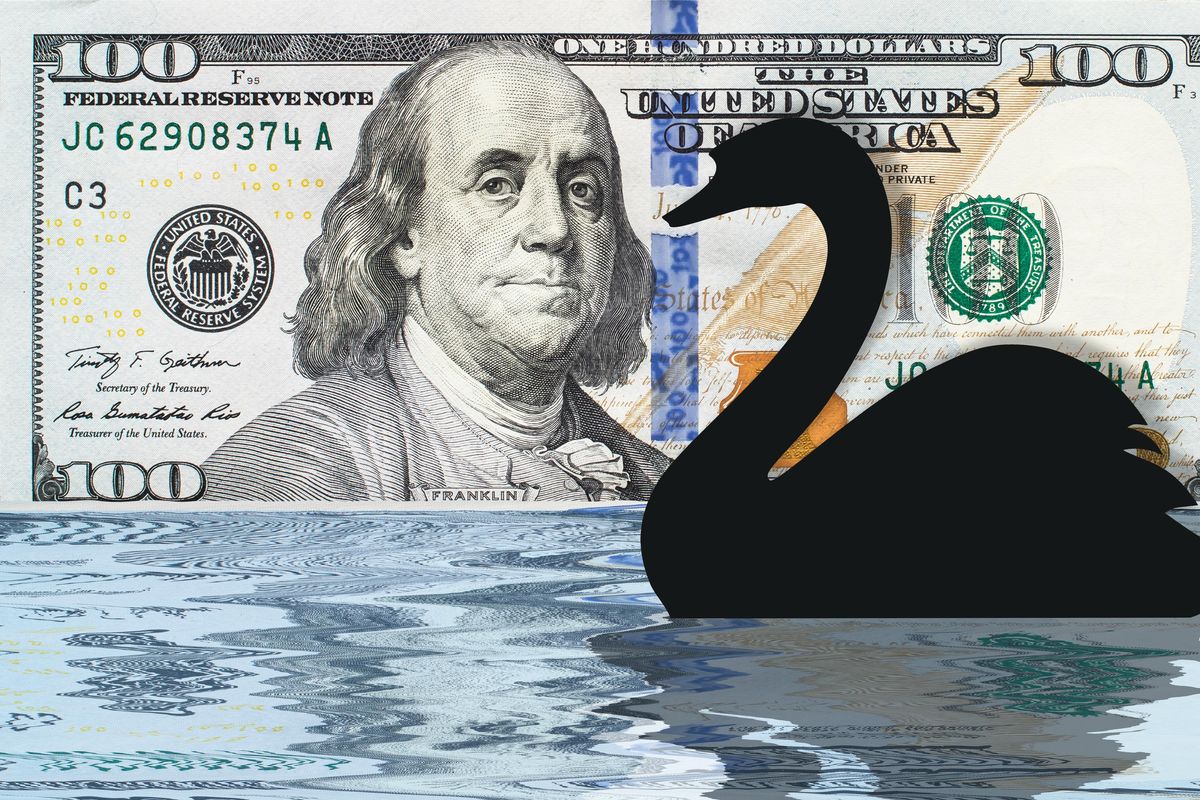Black or Gray Swan: What’s the Next Crisis?
Experts agree the world is on the verge of a major event. But what exactly will it be?

It seems there's been one global crisis after another since COVID-19 shut the world down in 2020.
With markets fluctuating wildly and economies in turmoil, investors have been left dizzied at best, and at worst have suffered disastrous portfolio losses. Across the board, market participants have questions about how to move forward.
At this year’s New Orleans Investment Conference, held in October, many presenters and guests provided insight on how to prepare for potentially unforeseeable scenarios. These unexpected negative events are called "black swans" — unpredictable events that go beyond what is normally expected with potentially severe consequences.
The experts also offered insight on "gray swans," situations that are known and possible, but unlikely to happen.
Black or gray swan: Currency crunch
For Tavi Costa, there is a looming currency crisis that will have dire repercussions.
“We're going to see a big crisis in China. Their definition for currency crisis is a speculative attack of a foreign-exchange-valued currency, resulting in a sharp depreciation that forces authorities to sell foreign exchange reserves and raise domestic interest rates within the currency,” the portfolio manager at Crescat Capital told conference-goers.
“This is a true black swan event. There are very few people that are positioned for this that I know of.”
Fellow conference speaker Brent Johnson, CEO of Santiago Capital, also sees an impending currency crisis across much of the globe. In fact, he is so sure of it that he has developed a theory describing it.
“The 'dollar milkshake' theory is really a framework for how I see a sovereign debt currency crisis playing out,” he said. “I believe that in that type of an environment, capital will seek the relative safety of the US versus the rest of the world.”
Johnson explained that as the value of the dollar grows stronger, a monetary crash becomes more plausible.
“(It is) a strong dollar that kind of brings the monetary system to its knees, not a weak dollar,” he said. “And I think as the (US Federal Reserve) loses control, the dollar goes higher, not lower.”
In September, the US dollar index climbed to a 20 year high of 114.22 despite inflation being near 40 year highs and three consecutive 0.75 percent interest rate hikes from the US central bank.
“I also think, kind of ironically, that the more the Fed prints, the higher the dollar will ultimately go, mainly because whatever drastic measures we have to take to support our economy, the rest of the world will have to take even more drastic measures to support theirs,” Johnson said, noting that the dollar's value has climbed 20 percent over the last 30 years.
“At some point along the way, I think the dollar and gold will rise together. I think they will be the last two standing before the world demands some kind of a reset, or a new monetary system takes place,” Johnson said.
Black or gray swan: Recession ready
Since late 2021, market watchers have been sounding the recession alarm. This became more likely in 2022 amid persistently high inflation and rising interest rates, all while supply chains remained fragile and the fear of more lockdowns loomed.
During his conference presentation, titled “A Vicious Stagflationary Environment,” Costa pointed out that current economic conditions are very similar to the inflationary recession of 1973 to 1974.
Costa pointed to today's debt, valuation problems and the rising consumer price index (CPI) to support his stance.
“But just looking back in history, it took a 48 percent decline in equity markets and the S&P 500 (INDEXSP:.INX), specifically, until we saw CPI starting to trend lower,” he said, referencing the 1973 to 1974 period.
“Is it a possibility that we can see that (again)? I personally think so.”
On a broader scale, Peter Boockvar, chief investment officer at Bleakley Financial Group, sees the huge amount of sovereign debt as the most immediate threat to the global economy.
“The bubble this time around — and some can argue that in dollar terms it's the largest financial bubble in the history of bubbles — that's the sovereign bond bubble,” he said. Boockvar continued, “You have negative interest rates — you had US$18 trillion of negative-yielding securities. That's where the bubble was. That's where it is now unwinding.”
He went on to say that the current central bank regime of interest rate hikes “directly deflates that bubble.”
This sentiment was picked up on during the conference's economy panel, where Johnson told attendees that Fed Chair Jerome Powell is committed to stamping down demand inflation by any means necessary.
“(Powell) is smart enough to know that he cannot crush demand in the US without crushing demand, externally first,” Johnson said. “And I think that's actually part of their calculation … I think it's somewhat engineered.”
source: tradingeconomics.com
In June, the US inflation rate hit a four decade high of 9.1 percent, prompting the Fed to aggressively raise interest rates. The measure has been somewhat successful, with inflation falling to 7.7 percent in October, a move Johnson expected.
"I actually believe Jay Powell — that if (inflation rates) start to come down a little bit, he's not going to stop,” he said.
If the Fed's motivation isn't to see inflation ease, then what it is looking for?
“If we get this crisis in the system itself (and) the credit markets seize up, the Treasury markets seize up, they will absolutely pivot again. That's why they're there,” explained Johnson.
“That's their whole role in life — to save the system when it goes into question. I just don't think they're going to do it to save Turkey, or do it to save Malaysia or Singapore.”
Global inflation is anticipated to spike dramatically year-over-year, rising from 4.7 percent in 2021 to 8.8 percent in 2022.
Don't forget to follow us @INN_Resource for real-time updates!
Securities Disclosure: I, Georgia Williams, hold no direct investment interest in any company mentioned in this article.
Editorial Disclosure: The Investing News Network does not guarantee the accuracy or thoroughness of the information reported in the interviews it conducts. The opinions expressed in these interviews do not reflect the opinions of the Investing News Network and do not constitute investment advice. All readers are encouraged to perform their own due diligence.
- Gold Outlook 2022: Consolidation a Launching Pad for Price Rise ›
- "Don't Make Investment Decisions Based on Inflation" — Experts Share Advice in New Orleans ›
- What is the VIX? ›






